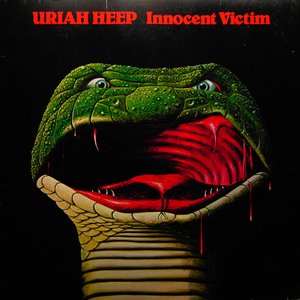Published on Jan 31, 2001
By all accounts, I should hate
Innocent Victim, the eleventh studio album from British
popsters Uriah Heep (and their second release in 1977). The second
of three albums with vocalist John Lawton, there are more
pop-oriented songs on this disc and less of the heavy space-rock
that the band had become known for.
Yet I don’t hate this album; despite everything I’ve heard about
it and read from other critics, I actually
like
this album. I should know; I spent almost an entire day
listening to nothing else but the re-release of this album, and I
still don’t hate it. Are mistakes made on this disc? Yes. Are they
as fatal as some people would like you to believe? No.
Lawton and crew showed they were moving in a slightly different
direction on Uriah Heep’s previous disc
Firefly – the first of their albums I had enjoyed in a
while. Innocent Victim builds on those changes, and helps to cement
the band’s direction a bit. The end result, I think, is a better
album.
Besides, it’s unfair for people to say that
Innocent Victim abandons the rock that Uriah Heep had become
known for. Take “Free ‘n’ Easy,” for example. Mick Box’s guitars
let you know that this track has all of the power that Uriah Heep
had become known for. And while “Keep On Ridin'” and “Flyin’ High”
might not have had the sonic crunch that a track like “Easy Livin'”
had in their early days, these songs also prove themselves to be
more than enjoyable.
And now, for the mistakes. They number two – the first being
“Free Me,” which is just too light and disjointed to have any real
musical muscle. It’s not a bad try, but it’s just not Uriah Heep,
and it sounds as uncomfortable as a wetsuit made from burlap. The
second mistake is “Cheat ‘n’ Lie,” which follows in the
pseudo-ballad-rocker vein that “Free Me” does. One of the bonus
tracks, “Masquerade,” would have done a better job than either of
these tracks.
For that matter, had both been eliminated and “Illusion”
stretched out to include “Masquerade” (as it does on the included
bonus track),
Innocent Victim would have been a better album originally.
As bonus material, it just makes me wonder what could have
been.
If
Innocent Victim is guilty of anything, it might be trying
too hard to break new ground. Sometimes, it works (“The Dance,”
“Roller”); other times, it doesn’t (“Free Me”). But Uriah Heep did
produce an enjoyable album in
Innocent Victim, even if I’m one of the handful of people
who will come out and say so.
